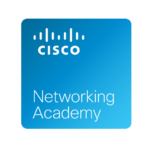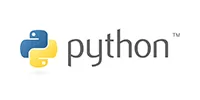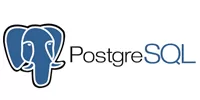- Courses
 Business Management
Business Management IT Networks and ITSM
IT Networks and ITSM Data Management
Data Management Information Security
Information Security Software Development
Software Development Digital Transformation
Digital Transformation Graphic Design
Graphic Design
- Career Paths
- Vendors
Data Scientist and Machine Learning Engineer Career Path
Convert Data Science Insights into Strategic Impact and Pioneer Machine Learning Solutions
In Collaboration With industry experts







Overview
Data Scientist roles are booming with a 36% projected growth and over 20,000 new opportunities each year, offering median salaries above $108K. Meanwhile, the global machine learning market is set to reach $503B by 2030, driving top tech hubs to offer competitive salaries between $110K and $150K for skilled engineers.
The Data Scientist & Machine Learning Engineer career path is a comprehensive, hands-on learning journey designed to equip you with the critical skills needed to excel in one of the most in-demand fields in tech. This career path guides learners from foundational knowledge in data analysis and statistics to advanced machine learning techniques, model deployment, and real-world AI applications.
Skills You Will Gain
- Programming & Data Handling
- Python for data analysis and automation
- Data cleaning, transformation, and visualization using Pandas, Matplotlib, and Seaborn
- Mathematics & Statistics
- Probability, linear algebra, and statistical modeling for machine learning
- Machine Learning & AI
- Supervised/unsupervised learning, deep learning with TensorFlow & Keras
- Model evaluation, tuning, and deployment
- Projects & Tools
- End-to-end ML pipelines and real-world datasets
- Tools: Jupyter, Scikit-learn, Git, SQL, APIs
- Cloud platforms like AWS
Career Prospects
Upon completing this career path, learners will be prepared for a variety of roles, including:
- Data Scientist
- Machine Learning Engineer
- AI Engineer
- Data Analyst with ML focus
- Business Intelligence Developer
- Research Analyst in AI/Data
Professionals in these roles are highly sought-after across industries such as finance, healthcare, retail, tech, and government, with opportunities to work on cutting-edge innovations like predictive analytics, recommendation systems, natural language processing, computer vision, and more.
Create a Job-Ready Project Portfolio
With personalized support, hands-on labs, and a curriculum tailored to real-world scenarios, you’ll be ready to take on complex challenges and boost your career prospects.
+100 hours of extensive learning
Gain in-depth knowledge through a mix of instructor-led sessions and hands-on exercises.
Practical Workshops Sessions
Gain hands-on experience with tools and techniques in interactive workshops.
Certification with Credibility
Showcase your skills with a accregated certificate to enhance your professional profile
Industry-Relevant Curriculum
Learn practical tools and techniques tailored to solve real-world business challenges.
10% OFF For Limited Time
Career Opportunities for Data Scientist and Machine Learning Engineer
Graduates of the Data Science and Machine Learning career path can pursue roles like Data Scientist, Machine Learning Engineer, Data Analyst, or AI Engineer in industries such as technology, finance, healthcare, and e-commerce. With skills suited for full-time, part-time, or freelance work, they are ready to analyze data, build AI models, and drive innovation in the ever-evolving world of data and artificial intelligence! 🚀
Graduates of CLS Learning Solutions’ Data Science and Machine Learning career path are prepared for diverse roles in data and AI, including:
- Data Scientist – Extracts insights from complex data, builds predictive models, and drives data-driven decision-making.
- Machine Learning Engineer – Designs, trains, and deploys machine learning models using Python, TensorFlow, and Scikit-Learn.
- Data Analyst – Analyzes large datasets, visualizes trends, and provides actionable insights using SQL, Pandas, and Power BI.
- AI Engineer – Develops and integrates AI-powered solutions, working with deep learning and generative AI frameworks.
With these industry-relevant skills, graduates can pursue full-time, freelance, or remote opportunities in the ever-evolving field of data and AI! 🚀
Our Graduates' Success Stories

Data Science and AI Graduates

AI and Machine Learning Graduates

Data Scientist Graduates

DEPI Scholarship Graguates
Why Learn from CLS?
Years of Experience
Since 1995, we’ve been a trusted training partner, helping individuals and organizations achieve their goals.
Expert Instructors
Learn from with top experts in the industry guranteed and get career assistance and coaching.
Hands-On Learning
Our courses are designed with real-world projects and practical applications.
What you will learn in this career path?
-
Introduction to AI & ML
• Overview of AI and its various types
• Ethical considerations in AI
• Introduction to machine learning paradigms (supervised, unsupervised, reinforcement learning)
• Brief introduction to generative AI -
Data Science Workflow
• Data acquisition and cleaning
• Preprocessing and feature engineering
• Model selection, training, evaluation, and deployment
• Introduction to Agile development principles -
Python Fundamentals for Data Science
• Basic Python syntax and programming concepts
• Data structures (lists, tuples, dictionaries)
• Control flow and functions
• Object-oriented programming (OOP) basics
- Develop a Comprehensive Understanding:
Gain an introductory overview of AI and machine learning, ensuring familiarity with essential concepts and terminology. - Understand Data Science Processes:
Learn the step-by-step workflow involved in a data science project—from data collection and cleaning to model deployment—enabling you to see how each phase contributes to the overall process. - Build a Programming Foundation:
Establish a solid foundation in Python, including basic syntax and programming constructs, which is essential for any subsequent data science and AI work. - Cultivate Ethical and Critical Thinking:
Recognize the ethical implications of AI applications and understand the importance of responsible data handling and model development. - Prepare for Advanced Topics:
Equip yourself with the initial skills and knowledge needed to tackle more complex subjects in later courses.
-
Descriptive & Inferential Statistics
• Measures of central tendency and variability (mean, median, mode, variance, standard deviation)
• Overview of probability distributions
• Hypothesis testing and confidence intervals -
Linear Algebra Fundamentals
• Introduction to vectors and matrices
• Matrix operations and transformations
• Eigenvalues and eigenvectors with applications in machine learning
- Master Statistical Concepts:
Develop a deep understanding of both descriptive and inferential statistics to analyze and interpret data effectively. - Apply Statistical Techniques:
Learn to perform hypothesis testing and use confidence intervals, essential for making data-driven decisions. - Build Mathematical Rigor:
Gain proficiency in linear algebra concepts that form the backbone of many machine learning algorithms. - Bridge Theory and Practice:
Understand how statistical and mathematical principles are applied in real-world machine learning scenarios. - Enhance Analytical Skills:
Develop the ability to analyze datasets quantitatively, ensuring that you can underpin technical decisions with robust statistical reasoning.
-
Data Wrangling with Pandas
• Techniques for data cleaning, transformation, and manipulation
• Handling missing data and outliers
• Data merging, concatenation, and reshaping -
Data Visualization with Matplotlib & Seaborn
• Creating a variety of plots (bar, line, scatter, histogram)
• Using visualization to conduct exploratory data analysis and communicate insights
- Enhance Data Preparation Skills:
Acquire the skills needed to clean, transform, and organize data efficiently using Pandas, ensuring that data is analysis-ready. - Develop Visualization Proficiency:
Learn to create meaningful and visually appealing data visualizations that facilitate clear communication of insights. - Support Exploratory Analysis:
Build the ability to explore and understand data through graphical representations, fostering an intuitive grasp of underlying patterns. - Improve Problem-Solving:
Use data wrangling and visualization techniques to identify and solve data issues, making your analyses more robust. - Prepare for Data-Driven Decision Making:
Develop the tools and mindset necessary for effective data storytelling and informed decision-making in real-world scenarios.
-
Relational Databases & SQL Fundamentals
• Introduction to relational database concepts
• Basic SQL commands (SELECT, FROM, WHERE, JOINs, aggregate functions) -
Advanced SQL & Database Design
• Advanced querying techniques (subqueries, common table expressions, window functions)
• Fundamentals of database design and normalization
• Indexing for query optimization
- Develop Data Extraction Skills:
Learn to efficiently query relational databases to extract and manipulate data using SQL. - Strengthen Database Knowledge:
Gain an understanding of database structures, normalization, and the best practices in database design. - Enhance Query Performance:
Understand advanced SQL techniques to write optimized queries and ensure efficient data retrieval. - Bridge Data and Analysis:
Connect data storage concepts with analytical tasks, ensuring a smooth transition from raw data to actionable insights. - Build a Solid Foundation for Data Management:
Prepare for complex data tasks by mastering both basic and advanced SQL skills, critical for effective data analysis and reporting.
-
Regression & Classification Algorithms
• Linear regression and logistic regression techniques
• Decision trees and random forests
• Model evaluation metrics (confusion matrix, precision, recall, F1-score, AUC)
• Introduction to hyperparameter tuning -
Ensemble Methods
• Overview of bagging and boosting techniques
- Understand Core Algorithms:
Gain a comprehensive understanding of key supervised learning algorithms and their applications. - Develop Evaluation Competence:
Learn to use various evaluation metrics to assess the performance of predictive models effectively. - Enhance Predictive Accuracy:
Master techniques for hyperparameter tuning to optimize model performance. - Explore Ensemble Techniques:
Understand the principles behind ensemble methods and how they can boost model accuracy and robustness. - Prepare for Real-World Applications:
Build the skills needed to implement, evaluate, and refine supervised learning models in practical scenarios.
-
Clustering Techniques
• K-means clustering fundamentals
• Overview of hierarchical clustering -
Dimensionality Reduction
• Principal Component Analysis (PCA) for reducing data complexity
- Identify Hidden Patterns:
Learn unsupervised learning techniques to discover hidden patterns and structures in data. - Master Clustering Techniques:
Understand and implement clustering algorithms to group data meaningfully. - Simplify Complex Data:
Acquire skills in dimensionality reduction, particularly PCA, to streamline datasets and enhance analysis. - Enhance Data Interpretation:
Develop the ability to interpret and visualize clusters and reduced dimensions effectively. - Prepare for Advanced Analysis:
Build a foundation for tackling more sophisticated machine learning problems by reducing noise and redundancy in data.
-
Neural Networks Fundamentals
• Basic principles of neural networks
• Understanding perceptrons, activation functions, and backpropagation -
Deep Learning Frameworks
• Hands-on introduction to TensorFlow/Keras or PyTorch
• Practical examples and basic usage of deep learning libraries
- Build Foundational Knowledge:
Develop a solid understanding of the basic building blocks of neural networks and deep learning. - Explore Neural Network Architectures:
Learn how different network structures work and how they can be applied to solve complex problems. - Gain Hands-On Experience:
Acquire practical skills in using popular deep learning frameworks, facilitating the transition from theory to practice. - Understand Model Training:
Learn the intricacies of training neural networks, including forward propagation, backpropagation, and optimization techniques. - Prepare for Advanced Deep Learning:
Establish a strong base that will enable you to dive into more complex deep learning architectures and applications.
-
NLP Fundamentals
• Text preprocessing and tokenization
• Techniques for stemming and word embeddings
• Basic text classification methods -
Generative AI Introduction
• Overview of generative models such as LLMs and GANs
• Introduction to prompt engineering and its applications
- Understand Textual Data:
Develop a deep understanding of NLP fundamentals, enabling you to process and analyze textual data efficiently. - Master Preprocessing Techniques:
Learn techniques to clean and prepare text data, making it suitable for further analysis. - Explore Model Applications:
Gain insights into how NLP models can be applied in tasks like classification and sentiment analysis. - Delve into Generative Models:
Understand the high-level concepts behind generative AI, including the workings of LLMs and GANs. - Apply Prompt Engineering:
Learn the basics of prompt engineering to effectively interact with and guide generative models in practical applications.
-
Model Deployment
• Overview of deployment strategies for machine learning models
• Introduction to deploying models on cloud platforms and via APIs -
MLOps Fundamentals
• Principles of MLOps and best practices for model lifecycle management
• Basics of version control and continuous integration for models
- Understand Deployment Strategies:
Learn various strategies for deploying machine learning models, ensuring they transition smoothly from development to production. - Gain Practical Deployment Skills:
Acquire hands-on experience with cloud platforms and API integration for real-world model deployment. - Embrace MLOps Practices:
Understand the principles of MLOps to streamline the process of model updates, monitoring, and maintenance. - Ensure Model Reliability:
Learn best practices for version control and continuous integration to maintain model performance and reliability over time. - Prepare for Operational Challenges:
Develop the skills to manage the lifecycle of machine learning models in a production environment, addressing challenges such as scalability, reproducibility, and robustness.
Data Science & Machine Learning Career Path is well suited for a variety of profiles like:
- Developers aspiring to be an ‘Artificial Intelligence Engineer’ or Machine Learning engineers
- Analytics managers who are leading a team of analysts
- Information architects who want to gain expertise in Artificial Intelligence algorithms
- Graduates looking to build a career in Artificial Intelligence and Machine Learning
Prerequisites for Data Science & Machine Learning Career Path
To succeed in this course, learners should have:
- Basic Programming Knowledge – Familiarity with Python is recommended.
- Mathematical Foundations – Understanding of algebra, probability, and statistics.
- Analytical Thinking – Ability to interpret data and recognize patterns.
- Basic SQL Skills – Knowledge of databases and querying is a plus.
- Familiarity with Machine Learning Concepts (optional) – Beneficial but not required.
Boost your career with our certification
Gain industry-recognized expertise in Data Science and Machine Learning with our career path. Master Python, SQL, Scikit-Learn, TensorFlow, and AI tools to analyze data, build models, and deploy AI solutions. Stand out in the job market and unlock limitless opportunities in data and AI! 🚀

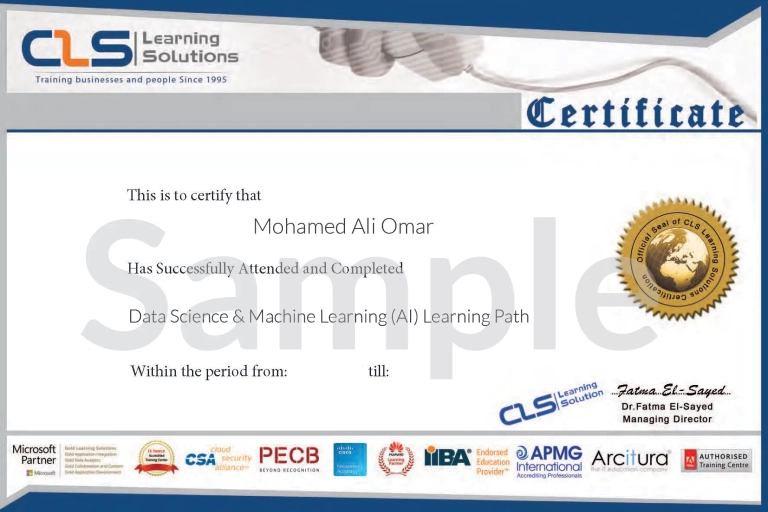
What Learners Are Saying

Vivian Fayez

Nada Osman

Samer Eltawansy

Amr Azab

Inaam Badawi

Muhammad Amjad Karara

Mahmoud Ibrahim

Abdelrahman Ahmed

Areej Sofy

Mohamed Saeed

Mohamed Mekkawy

Alyaa Gaber

Michael Fahmy

Mohamed Samir

Aziza moatz

Mohamed Abdel aziz

Hisham Ibrahim

Mohand Khaled
Ahmed ElGhobashy

Ahmed Mostafa Mahmoud

Mohamed Aldremly

Ahmed Elkomy

Mohamed Taha

Mohamed Hassan

Sama Aly

Ahmed Nehro
Training Locations
Our classrooms in provide an in-person learning experience with direct interaction with instructors,These locations are equipped with modern facilities that support collaboration, practical training, and focused attention
Cairo Branch
- 5 Mesaha Square , Dokki - Cairo
Giza Branch
- 5 Mesaha Square , Dokki - Cairo
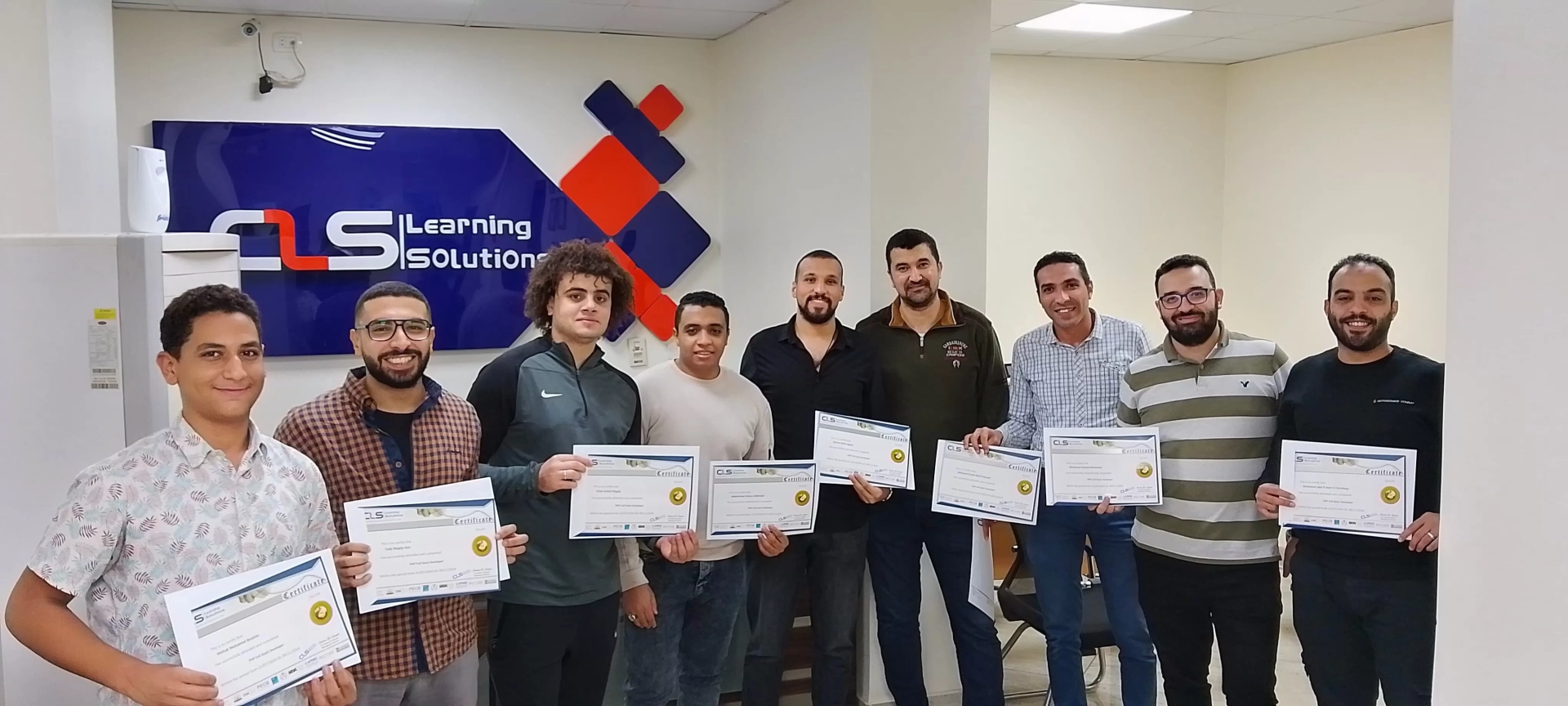


We offer two tailored virtual training formats, the Self-Paced Training to Enjoy the freedom to study anytime, anywhere and the Virtual Interactive Instructor-Led Training with flexible sessions that connect you with expert instructors in real time
Virtual Instructor-Led Training
- Live, at Programmable Hours
Self-Paced Training
- Learn Anytime, Anywhere!



We offer on-site training at your company’s premises. Tailored to your business needs, these sessions allow employees to learn without leaving the workplace.
Our expert instructors will deliver courses designed to enhance skills and drive performance, all in a familiar and comfortable environment.
- At your company’s premises


The CLS Learning Solution Advantage
Experience
We have been in the market since 1995, and we kept accumulating experience in the training business, and providing training for more than 200,000 trainees ever since, in Egypt, and the MENA region.
Premium Facilities
CLS facilities are well-equipped with strong hardware and software technologies that aid both students and trainers lead very effective smooth training programs.
Customer Support
We provide our clients with the best solutions, customized to their specific needs and goals. Our team is highly qualified to answer whatever questions you have.
Global Accredited
CLS is an authorized and accredited partner by technology leaders. This means that our training programs are of the highest quality source materials.
Up To Date
We keep tabs on every change in the market and the technology field, so our training programs will always be updated up to the World-class latest standards, and adapted to the global shape-shifting job market.
Certified Instructors
We select the best instructors, who are certified from trustworthy international vendors. They share their professional experience with the Trainees, so they can have a clear hands-on experience.
10% OFF For Limited Time
© 2025 - CLS Learning - Solutions | All Rights Reserved.





